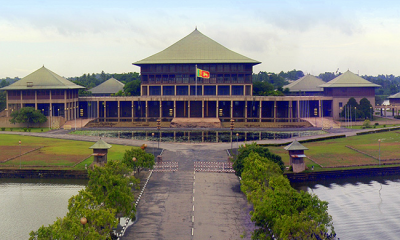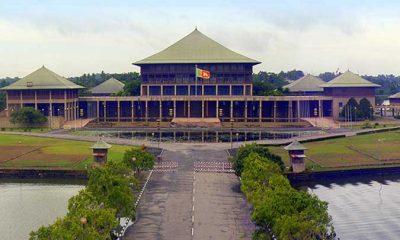News
Opposition demands tabling of agreement with IMF

By Saman Indrajith
Opposition members yesterday demanded that the government table the IMF staff-level agreement in Parliament.
Opposition and SJB Leader Sajith Premadasa said that the government had reached an agreement with the IMF. If the government needed its support for the IMF-recommended economic reforms, the Opposition needed to know the contents of the agreement at issue.
Premadasa said that Parliament had authority on public finance, and therefore the staff-level agreement with the IMF, should be tabled in Parliament.
Chief Opposition Whip and SJB Kandy District MP Lakshman Kiriella said that the IMF recommended reforms envisaged the sale of public ventures and the government had no mandate to privatise state enterprises.
“People voted for the Vistas of Prosperity and Splendour, which pledged not to privatise public enterprises. That was the mandate those in the government received. If they now try to restructure the public enterprises, they are acting against the mandate. We know that some state institutions have been listed for privatisation. There are people of over one million families serving in them. We are ready to support the process of restructuring the loss-making institutions, but you have to keep Parliament informed of this process,” Kiriella said.
SJB Colombo District MP and Chairman of the Parliamentary Committee on Public Finance, Dr. Harsha de Silva said that the government would not be able to get the Opposition’s support to implement IMF-recommended economic reforms without appraising Parliament of the contents of the agreement.
SLPP dissident MP and Chairman of the Committee on Public Enterprises, Prof Charitha Herath said that Parliament had the authority on public finance as per Section 148 of the Standing Orders, and the government should table the staff-level agreement with the IMF in Parliament. “I do not think the government could table the agreement in its entirety, but it needs to inform the House of the framework of the contents of the agreement,” Prof Herath said.
SLPP dissident MP Gevindu Cumaratunga said that former Finance Minister Ali Sabry kept informing the House of the government’s financial agreements with other countries. “As it was transpired at the recent meeting with the Central Bank Governor in Parliament, there had been many such agreements where Parliament had been kept in the dark. The decisions must be taken after informing this House because finally if it would become the responsibility of the 225 MPs here,” Cumaratunga said.
Badulla District SJB MP Chaminda Wijesiri said that when Sri Lanka had started talks with the IMFRanil Wickremesinghe was an Opposition MP. “As an Opposition MP, Wickremesinghe asked the government to table all documents pertaining to negotiations with the IMF. Basil Rajapaksa was the Finance Minister and did not table the IMF documents.”
Leader of the House and Education Minister Susil Premajayantha said that the request would be put forward to the President and Prime Minister and the latter would keep the House informed on the staff-level agreement, as promised.
News
Financial allocations for the development of infrastructure in provincial schools have been provided to all provinces – PM
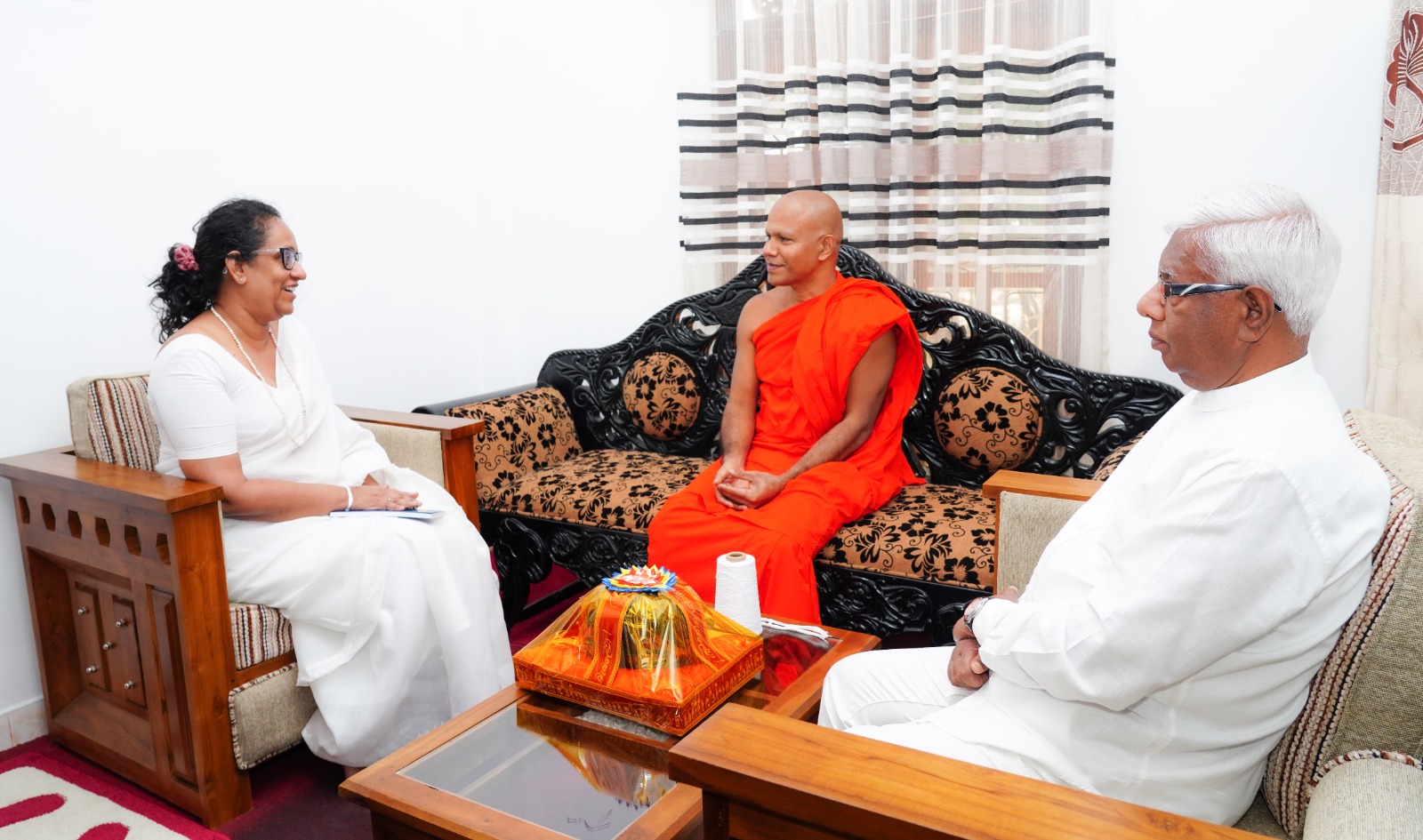
Prime Minister Dr Harini Amarasuriya stated that the necessary financial allocations for the development of infrastructure in provincial schools have been provided to all provinces. She emphasized that these funds must be utilized effectively for school development and requested that relevant authorities submit proposals to address existing shortcomings in school infrastructure.
The Prime Minister made these remarks during a cordial meeting with Muslim women in the Wellawaya area on 1st of March.
Subsequently, the Prime Minister met with the Chief Sanghanayake of the Uva Wellassa region and the Chief Incumbent of Yudaganawa Rajamaha Viharaya, Venerable Rajakeeya Panditha Most Venerable Galtemwatte Nandarathana Nayaka Thero, and briefed him on the current progress of the new education reforms.
She further stated that, while ensuring due recognition for vocational education, steps are being taken to develop 50 vocational training centers equipped with modern courses, covering all 25 districts of the country. She also noted that new education reforms will be introduced for Grade 6 starting in 2027, and that the printing of new textbooks will be entrusted to the Educational Publications Department of the Ministry of Education.
The occasion was attended by Uva Province Governor Attorney-at-Law Kapila Jayasekara, Deputy Minister of Trade, Commerce and Food Security R.M. Jayawardhana, Member of Parliament Ruwan Wijewardene, local government representatives, the Buttala Divisional Secretary and the District Secretary.
[Prime Minister’s Media Division]
Latest News
Free 14 day visa extension for visitors unable to depart Sri Lanka

The Department of Immigration and Emmigration has decided effective from 28th February 2026, to grant a free fourteen (14) day visa extension to all tourists who are unable to leave Sri Lanka due to flight cancellations. 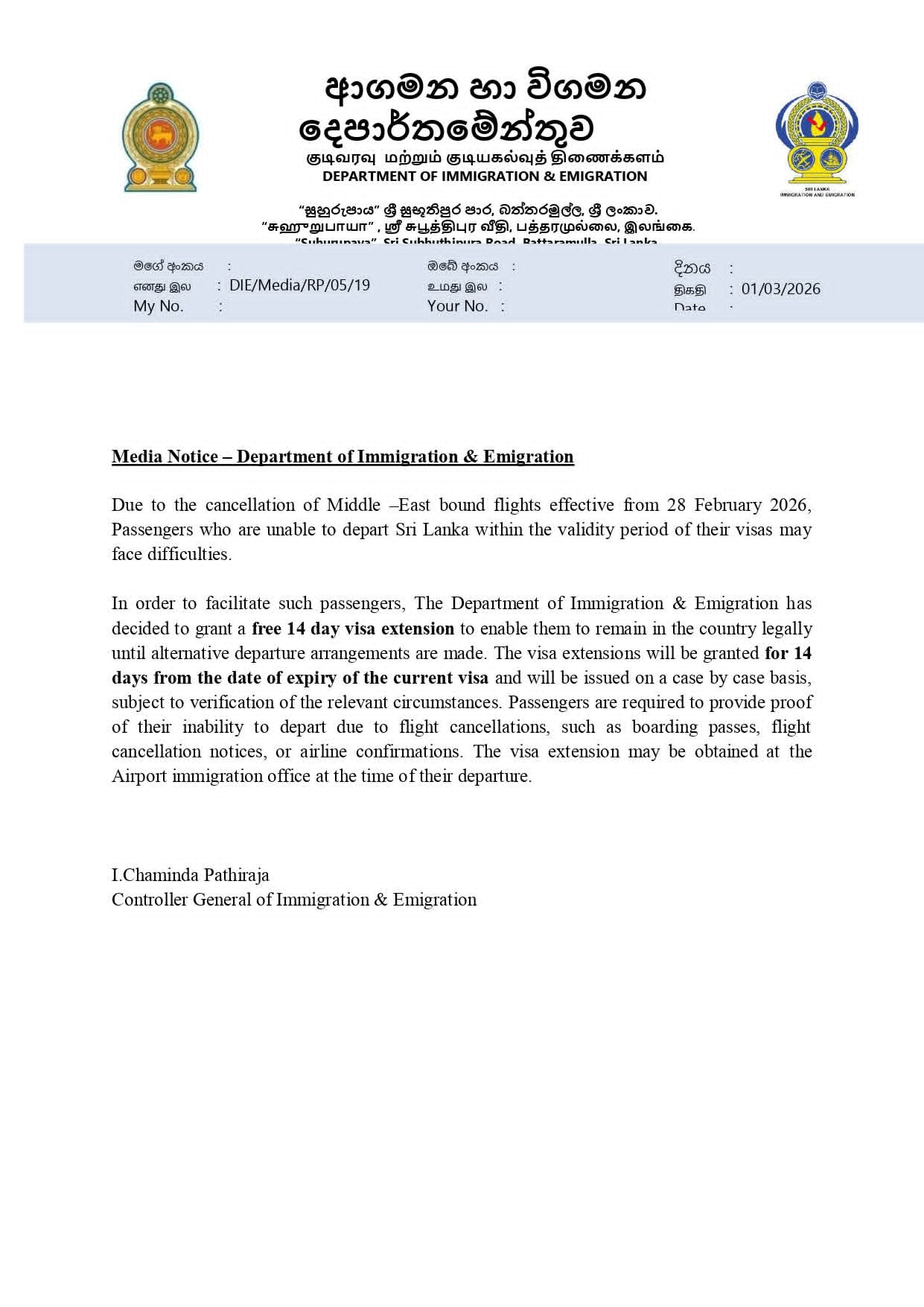
News
Maldives Coast Guard Ship Huravee arrives in Colombo
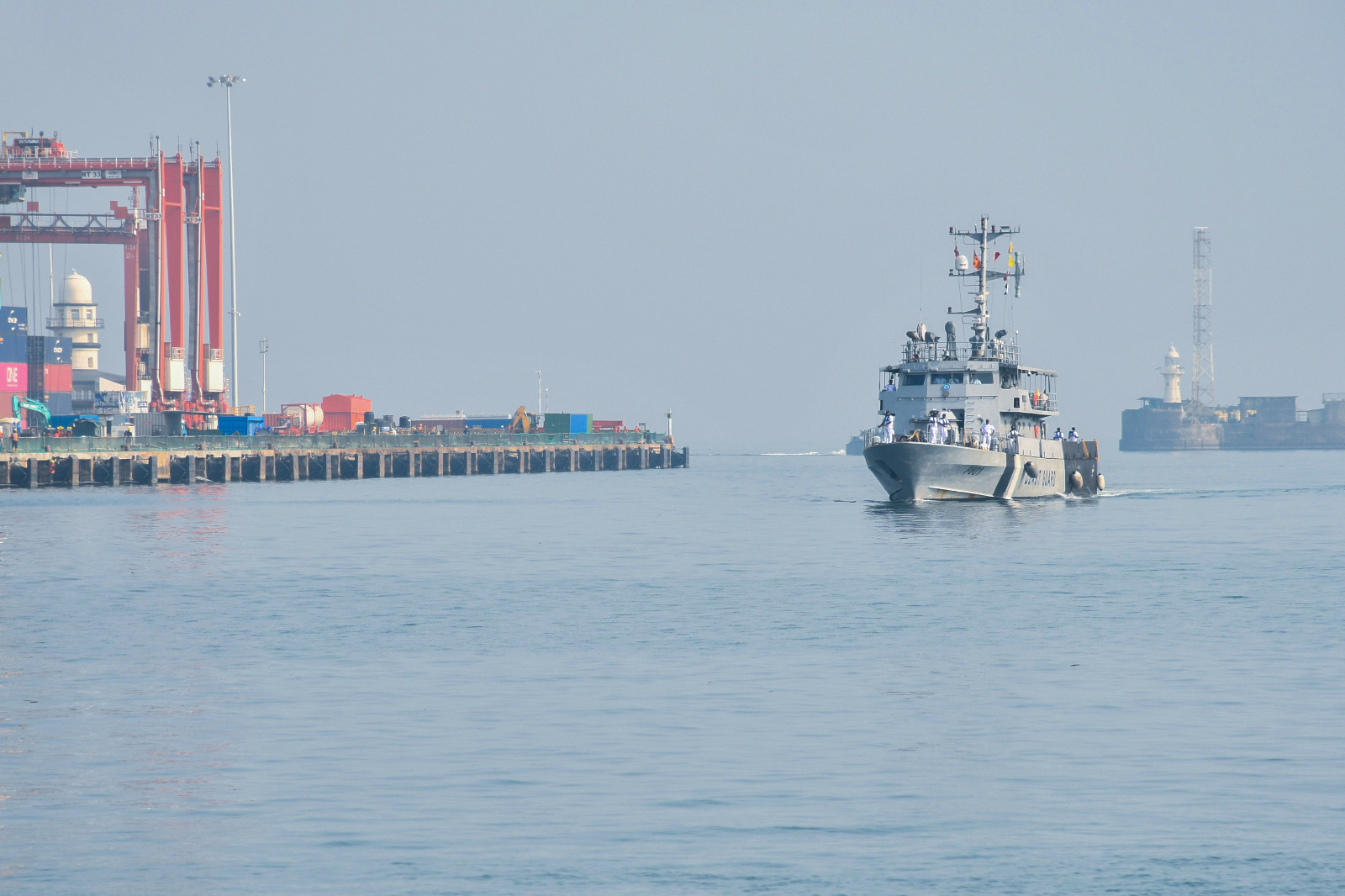
The Maldives Coast Guard Ship Huravee arrived at the Port of Colombo for replenishment purposes on 02 Mar 26. The visiting ship was welcomed by the Sri Lanka Navy (SLN) in compliance with time-honoured naval traditions.
The ship is a 48.9m long Offshore Patrol Vessel which is commanded by Lieutenant Colonel Ahmed Nafiu Mohamed.
Meanwhile, the ship’s crew is scheduled to visit several tourist attractions in the city of Colombo, during their stay in the island.
-

 Opinion6 days ago
Opinion6 days agoJamming and re-setting the world: What is the role of Donald Trump?
-

 Features3 days ago
Features3 days agoBrilliant Navy officer no more
-

 Features6 days ago
Features6 days agoAn innocent bystander or a passive onlooker?
-

 Features7 days ago
Features7 days agoRatmalana Airport: The Truth, The Whole Truth, And Nothing But The Truth
-

 Opinion3 days ago
Opinion3 days agoSri Lanka – world’s worst facilities for cricket fans
-

 Business7 days ago
Business7 days agoIRCSL transforms Sri Lanka’s insurance industry with first-ever Centralized Insurance Data Repository
-

 Business6 days ago
Business6 days agoAn efficacious strategy to boost exports of Sri Lanka in medium term
-

 Features4 days ago
Features4 days agoOverseas visits to drum up foreign assistance for Sri Lanka


